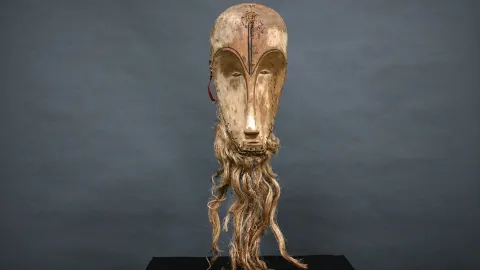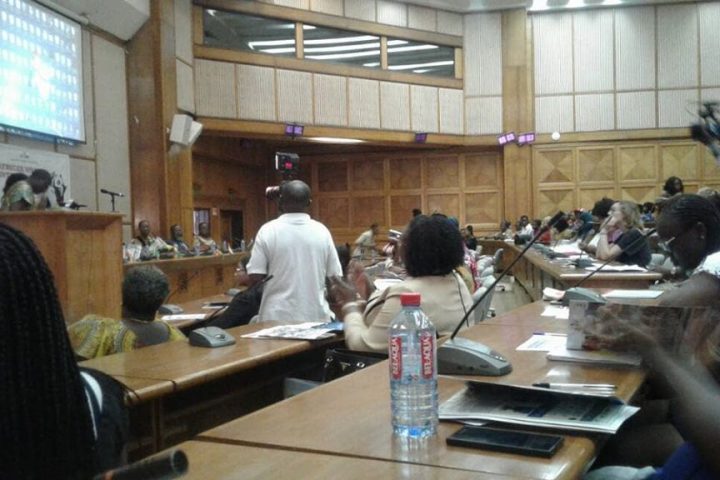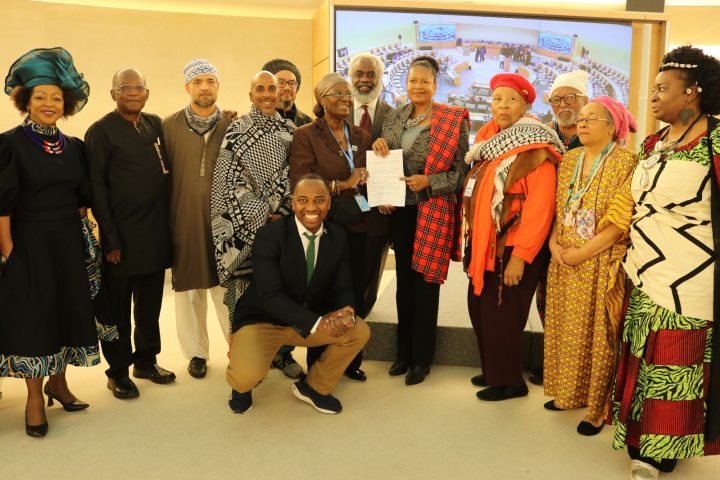Paris, France (CNN) — A simple garage sale in the south of France has transformed into a multimillion-dollar legal battle, with an ancient African mask at the heart of the controversy. The 88-year-old Mr. Fournier and his 81-year-old wife, Mrs. Fournier, unintentionally set off a chain of events that led to a fierce dispute over the mask’s ownership and value.
The mask, known as the “Ngil,” was part of the Fournier family’s inheritance from Mr. Fournier’s grandfather, René-Victor Edward Maurice Fournier, a colonial governor in Central Africa during the early 20th century when many African regions were under French colonial rule.
In September 2021, the elderly couple sold the mask to a second-hand dealer for a mere 150 euros, unaware of its true market value. Several months later, they discovered through a newspaper article that the mask was being auctioned for millions of euros.
To their shock, the mask sold for an astonishing 4.2 million euros, equivalent to over $4.5 million, leaving the Fourniers deeply regretful of their initial sale. They subsequently initiated a civil case against the dealer, alleging that he had failed in his obligation to provide pre-contractual information and breached their consent.
As the legal battle escalated, the Gabonese government intervened, requesting the suspension of the proceedings. They have filed a separate case for the handling of stolen goods, claiming that Mr. Fournier’s ancestor, the colonial governor, unlawfully acquired the Ngil mask during his time in Gabon.
The Ngil mask is of immense cultural and spiritual significance to the Gabonese people, as it belonged to the powerful Ngil society, tasked with administering justice in Fang communities. Such masks are considered rare and highly coveted African artifacts, often sought after by collectors.
The auction catalog for the mask suggested that it was collected by René-Victor Edward Maurice Fournier, the colonial governor, around 1917 during his tour of Gabon. However, the Gabonese government disputes the legality of the mask’s acquisition.
In court, the Fourniers’ lawyer argued that the dealer had deliberately concealed information about the mask’s origins and intended to share the proceeds with their gardener, who had provided him with information about the Fourniers’ ties to the colonial governor. The dealer and gardener allegedly visited the auction house together, posing as co-owners of the mask.
Despite the dealer offering 300,000 euros as compensation, equivalent to the auction house’s estimate of the mask’s value, the Fourniers refused and opted to file a lawsuit. Currently, the 3.2 million euros earned from the mask’s sale, after taxes and commission fees, are frozen in the dealer’s bank account.
The legal battle has garnered significant attention within France’s large African diaspora, with Gabonese protesters demanding the mask’s return to their country. The trial has highlighted the broader issue of restitution of colonial artifacts, with French President Emmanuel Macron advocating for the return of such items to their original owners.
While the outcome of this legal dispute remains uncertain, it has ignited discussions about the rightful ownership of cultural and historical artifacts acquired during the colonial era, underscoring the ongoing efforts to address historical injustices and return such treasures to their countries of origin.





